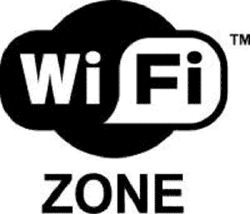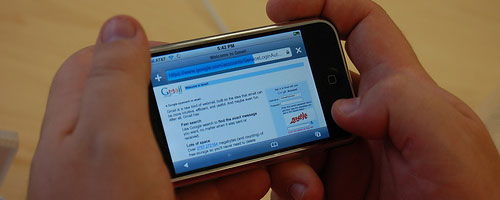Education
Wireless in classrooms

The availability of an accessible wireless network in schools should be put up for debate. It’s an interesting subject. For any technologically inclined student it is an obvious “yes”. Though high school administration is generally still paranoid about the use of their wired desktop networks, circa 2002, nevermind the new mobile devices. And so is the Lakehead University, probably the only post-secondary institution to actively ban wifi on campus, on the grounds of a potential health hazard. Others have unrestricted access.
The obvious benefit is internet access in classrooms. The similarly obvious “drawback” is internet access in classrooms. Among all of the legitimate uses, from simply checking email to elaborate setups for saving notes online, the most common laptop screen still displays Facebook and a few MSN Messanger windows. In the middle of a lecture.
One of the best changes between high schools and Universities is that the latter are liberating of a lot of restrictions. Nobody is freaking out over unfinished homework, and there is no longer anyone recording your computer screen and blocking your websites. The onus is now on the students, to moderate themselves.

I want to get myself an iPhone, or iPod Touch, or a similar wireless mobile device. My excuse is that I want to check my email in between classes, but in reality I will likely end up replying to blog comments during the Stats lectures. Boring classes and easily available distractions are a lethal combination, and sometimes the temptation could simply be too great.
So should wireless be curbed? Absolutely not. If anything, Universities should aim to provide better campus coverage. Even Lakehead appears to be loosing their ridiculous fight against wifi. Though it might be nice to see some sessions for internet addicts run during the Frosh week, next year.






I’ve noticed that having wireless access to msn is what keeps some people awake during lectures. In my opinion, awake and slightly detracted is still better than passed out all together.
Reply to comment
It’s hard to argue that statement. Although if the other option is to bluntly pass out on the desk, then maybe one is better off staying home and catching up on the much needed sleep. Tired + bored + distracted != anything learned.
Reply to comment
I’ve been debating with myself over weather using my laptop in class would be useful at all. I see a lot of people taking notes in Word and looking at the online course resources, but I really don’t see the advantage. I decided to try typing notes for one class and ended up going back to written notes half way through.
Reply to comment
That’s a good call Paul – laptops are good for typing up massive amounts of text, but I found them useless for taking notes in class. Unless you’re familiar with LaTeX, forget about typing up any math equations. And there’s no way to sketch out diagrams.
Any slideshow presentations (should be) available online. If you’re looking for another medium, get a voice recorder.
Reply to comment
If any particular class got out of hand with computer/internet usage when I was in college, the professor would ban computers during class. It is definitely a distraction, but especially if you’re a CS or SE major, you’re going to need your computer during most classes.
Reply to comment
How about recording, then having the recording converted to text?
http://en.wikipedia.org/wiki/List_of_speech_recognition_projects
Reply to comment
In college, maybe. At University, it’s all theory during lectures. There is no need for a computer until the practical assignments during the lab time.
Brandon – that’s an even cooler idea!
Reply to comment
You should be checking your blog stats in Stats, not replying to comments
Reply to comment
Haha, this way I could claim that it’s course relevant material! Actually the class is about the theory of probability, though click-through rates fall into that category. Please don’t tempt me
Reply to comment
I am strongly agree if a wireless connection is available in classrooms. There may have some worries about whether students can pay attention on lessons if there is wireless connection in a classroom. But actually if the teacher is good enough, have a good teaching skill, I bet that wireless connection in a classroom will never affect students’ studies.
Reply to comment
I do belive a wifi connection can keep you “alive” during boring lectures and maybe catch some things in the meanwhile but most people will disagree about it. I think that a combination of internet access in between brakes and classes and intranet access in the rest of the time could be created by the admins. There are so many possibilities of creating these things using all kinds of tools available now that it’s hard to even think about it.
I know I helped an admin friend of mine when I was a student create a similar policy for accessing that goes like this :
- using a squid proxy with acl’s created that are synchronized with an online php/mysql classes calendar to restrict access. Something like … student A has Class B from 10:00 AM to 14:00 PM. During this time , he has one break ( Between 11:40 – 12:00 ). During this break, he can access the internet ( email, IM, browsing, etc ), the rest he can access the intranet ( local portal, local email, etc. ). When I was a student this system worked pretty good, but from what I understand now, the admins have taken it out and there is a free wifi connection everytime. In exchange for a small fee … and that kinda hinders the “free” concept ..
Reply to comment
Well I guess that’s one way to supplement educational budget – sell wifi to students. Seems ludicrous though.
Reply to comment
Internet at hight school is a definite distraction. Another thing is, how much free time you have on high school? I don’t know about you, but for us, it’s straight lectures with around 30 mins break in middle. So it’s not worth at anyways. This is assuming that people are really attending lectures ofcourse.
Internet in classrooms: I don’t know if you mean computer classrooms or all of them. We generally lack internet as a whole, and yet they say that trouble tickets should be sent for the centralized tracking system! Funny how things go here.
One point however is, sooner or later, most countries are gonna be covered with wireless networks, and it will so cover school as well. FREE or not is another issue, but the coverage will be there. Kuwait have granted one ISP the Wi-Max project now. Let’s see how it goes.
Reply to comment
Hmm, my thoughts in order:
save yourself a couple of dollars and buy a Nokia internet tablet. It doesn’t have an Apple logo or a pinch-to-zoom function, but does just fine for email checking or whatever. (It runs Linux as a bonus.)
Regarding notes in class, etc: typing them on a laptop worked well enough for certain types of classes for me – the programming classes with little or no graphs involved. For everything else, I personally fail to see the usefulness of computer notes even if you are a LaTeX pro and can whip up complex calculus formulas in no time. However, that depends on your study habits. If instant text search would be extremely useful to you, it may be something worth investigating. When I study, I go through my notes in order, so search is not very useful to me.
Another thing that may be worth considering is a tablet. Especially coupled with OneNote, these are pretty nifty machines. I was given use of one for this term, and I’ve shelved it after two days. Why? Personal reasons (heavier than my Thinkpad X31, worse keyboard, the issue of maintaining two systems) aside, I found that the notetaking just isn’t that much better than the good old pen and paper. Handwriting is significantly slower than typing for text-heavy classes, and the pen lacks the fine resolution for graphs. As noted above, the search doesn’t help my study habits. Writing on a surface elevated some 4 cm off the surface of the table is not very inspiring, and neither is reading off a 2kg, lap-heating notebook replacement. The last nail in the coffin was hearing one of our profs saying that handwritten notes would be allowed in the exam. I didn’t think OneNote notes would fly, and I wasn’t interested in finding out.
Finally, I would like to support the motion that wireless helps students stay awake. Once you’ve fallen asleep, you cannot magically re-awake once something interesting/note-worthy happens; this is at least *theoretically* possible with MSNing/IRCing/facebooking. As for “maybe one is better off staying home and catching up on the much needed sleep” – if you have just one boring lecture in between two OK-ish ones, that’s not really an option, and sleep deprivation is not the problem with many (probably not most) class naps anyway.
PS. In high school, I had a 75 minute lunch, and if I were to do it again this year, I would definitely want some kind of wireless access at least in the library, preferably in other parts of the school as well. Though knowing school boards, it may be worth it investing in a WWAN-capable laptop.
Reply to comment
Jarek – you know your mobile devices! I’ll be considering this.
Reply to comment
I bet that no student will say NO if wireless connections will be setting up in a classroom. Actually students can be very lazy too although without wireless connection. So why not set up the wireless connection in classroom? Instead I think this may gain students’ knowledge towards many sectors though world wide web.
Reply to comment
All I have to add is this:

Reply to comment
im from the philippines and i really like this kind of idea… i hope that someday this will be implemented in our place. so it will more improve are quality in education…
Reply to comment
here in the UK the government wants to make wireless standard in all classrooms at school, it certaintly will have it advantages and i have wireless at home, it does make things a lot more convenient. However a few months ago there was a program on TV about the dangers of wireless technology, and how some people believe it is harmful like mobile phones. They showed how the government scientists were saying it was unsafe or not tested enough to say whether its safe or not, but the government didnt listen to them and instead listened to someone who worked for the phone companies and had a vested interest in the technology. The program worried me enough to switch of my router at night, and disable my laptop wi-fi when not using it.
Reply to comment
Really, between cell phones, radio and TV air transmissions, microwaves, and holes in ozone layer, worrying about WiFi is a bit comical…
Reply to comment
@Martin – seems that the program was kind of bias in its view. To quote your own comment:
So while it wouldn’t hurt to flip the switch, right now I would have to agree with Jarek and say that worrying about the negligible impact of the WiFi router is comical. They simply don’t output nearly as much power as cellphone antennas do. Besides, there are much bigger concerns in our environment.
Reply to comment
In addition to the social & scholarly impacts are the aesthtics of implementing these kinds of systems across campus. There are a couple different ways to get the signal out. WISP Towers or Wireless routers in each classroom.
The towers route would only need a few scattered around campus. The towers could look ugly but could be disguised as something else. The routers in each classroom wouldn’t be seen but due to the large number used might get cumbersome and complicated.
Reply to comment
i think having wifi spots in our classrooms have been a real help for me personally. when our professor is really really boring connecting to the server keeps me awake. lol
Reply to comment